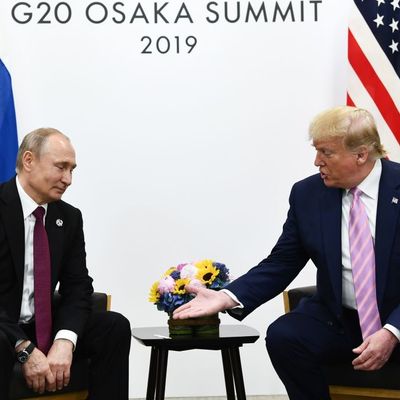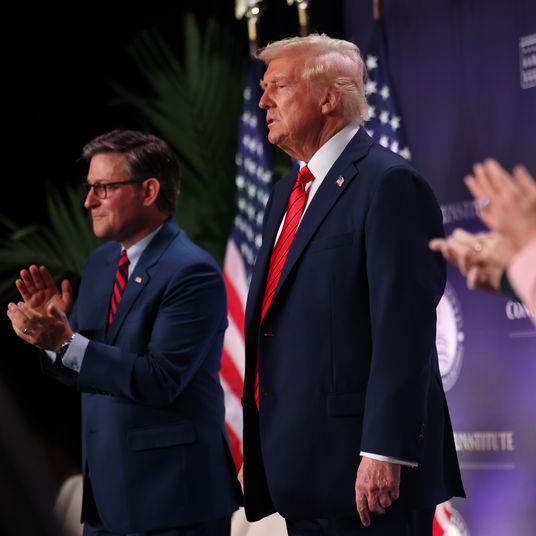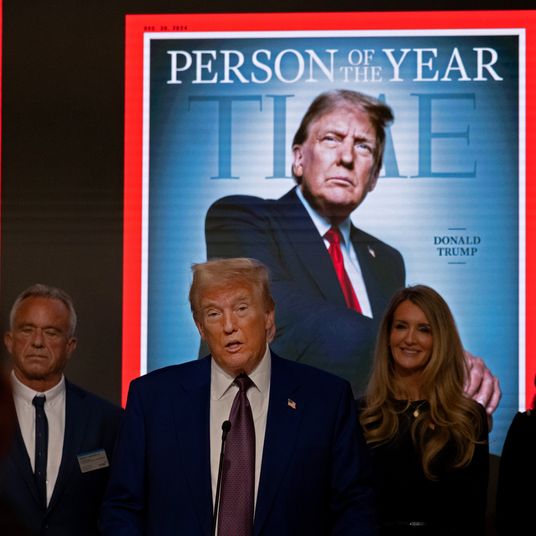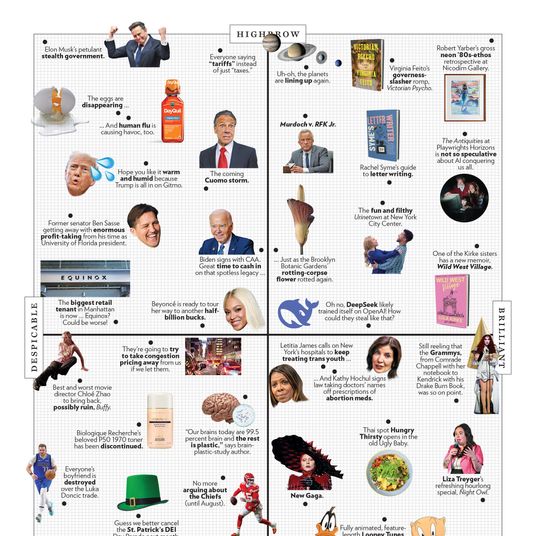
Everything from crowdfunding for astronomical medical bills to ensuring the permanence of American soft power seems to be about storytelling these days. At least that’s what the Pentagon is suggesting in a newly unclassified “Strategic Multilayer Assessment,” which states that America is losing the race for global influence, in part because the United States “lacks a compelling ‘story’ to present as a counter to competing narratives” emerging from Russia.
“We still have a story to tell, but because we are so polarized and are doubting ourselves, we have a narrative problem,” Anna Borshchevskaya, an author of the white paper and senior fellow at the Washington Institute for Near East Policy, told Politico. “Russia does not.” What Russia does have — which may be obvious at this point — is a willingness to undermine democratic institutions from Africa to North America with “gray zone” efforts, which include interference, propaganda, and other activities shy of military action. Russian goals include reestablishing “influence over former Soviet states” and rehabbing its image as a “great power” and “key regional power broker.” “Political objectives matter to the Kremlin in a zero-sum worldview,” the report states. “For Russia to win, the U.S. has to lose.”
Though the paper does not directly criticize the president, many of its findings suggest that Donald Trump’s chaotic foreign-policy leanings and his relationship with Vladimir Putin have dampened America’s capacity to deter Russian interference within our borders and in allied countries. “Russia’s gray zone tactics are most effective when the target is deeply polarized or lacks the capacity to resist and respond effectively to Russian aggression,” the paper states. “Such confrontations increase the risk of misperception and miscalculation between powers with significant military strength, which may then increase the risk of armed conflict.”
The study also warns of a warming relationship between Russia and China, two countries that share an “authoritarian stability” — not to mention a knack for covert operations. To counter the threat of their renewed alliance, the paper recommends that the U.S. push for “European allies to take the lead for balancing in Europe. The allies’ goal should be deterrence. At the same time, the U.S. should bilaterally engage Russia to peel them away from China’s orbit.”
Trump has definitely had his share of bilateral talks with Putin, but it’s unlikely that they lived up to the standards put forth by the Pentagon: Last week at the G20 summit in Osaka, the president joked with Putin, pointing his finger and halfheartedly telling him not to meddle in the 2020 election.






























